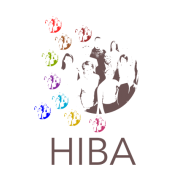
Many e-health services and technologies have not been successful in bringing sustainable innovations into health care practices. E-health services and technologies often fail to acknowledge the interdependency of technology, socioeconomic environment and the entire spectrum of citizens’ health information behaviour.
The Academy of Finland financed project Taking Health Information Behaviour into Account: Implications of a Neglected Element for Successful Implementation of Consumer Health Technologies on Older Adults (HIBA) between 2015 and 2020 studies how citizens’ health information behaviour influences the use of consumer health technologies and how these technologies can be effectively tailored to fit the everyday health information behaviours and practices of a growing ageing population suffering from a chronic condition (type 2 diabetes) to complement, substitute, and add personal and societal value to traditional health services. The objective is to develop comprehensible, manageable and, in particular, more meaningful and user friendly e-health services in the future. The projects addresses three specific questions of 1) How do older adults (born 1946–1960) with diabetes experience the usefulness, effectiveness, trustworthiness and privacy of e-health services? 2) Do existing e-health services have an impact on issues related to older adults health information behaviour?, and 3) How can e-health services be tailored to effectively fit older adults everyday health information behaviour? What are characteristic features of such tailored services? The major contribution of the project is to provide a holistic point of view on e-Health, the use and users of e-health services that acknowledges the interdependency of human information behaviour, technology, and the socioeconomic environment, which has been lacking from previous research. The findings inform research in the field of health information behaviour and e-health, but also on related fields from medical informatics to HCI, public health and computer science. The practical significance of the project is in that using action research approach it provides directly applicable information on user practices and the actual utility value of the studied e-health services that can be used in improving existing services and developing new ones.
Researchers
- Prof. (Doc.) Isto Huvila, project director
- Dr. Heidi Enwald
- Dr. Kristina Eriksson-Backa
- Ms. Noora Hirvonen
More information
- Project HIBA at blogs2.abo.fi/hiba
